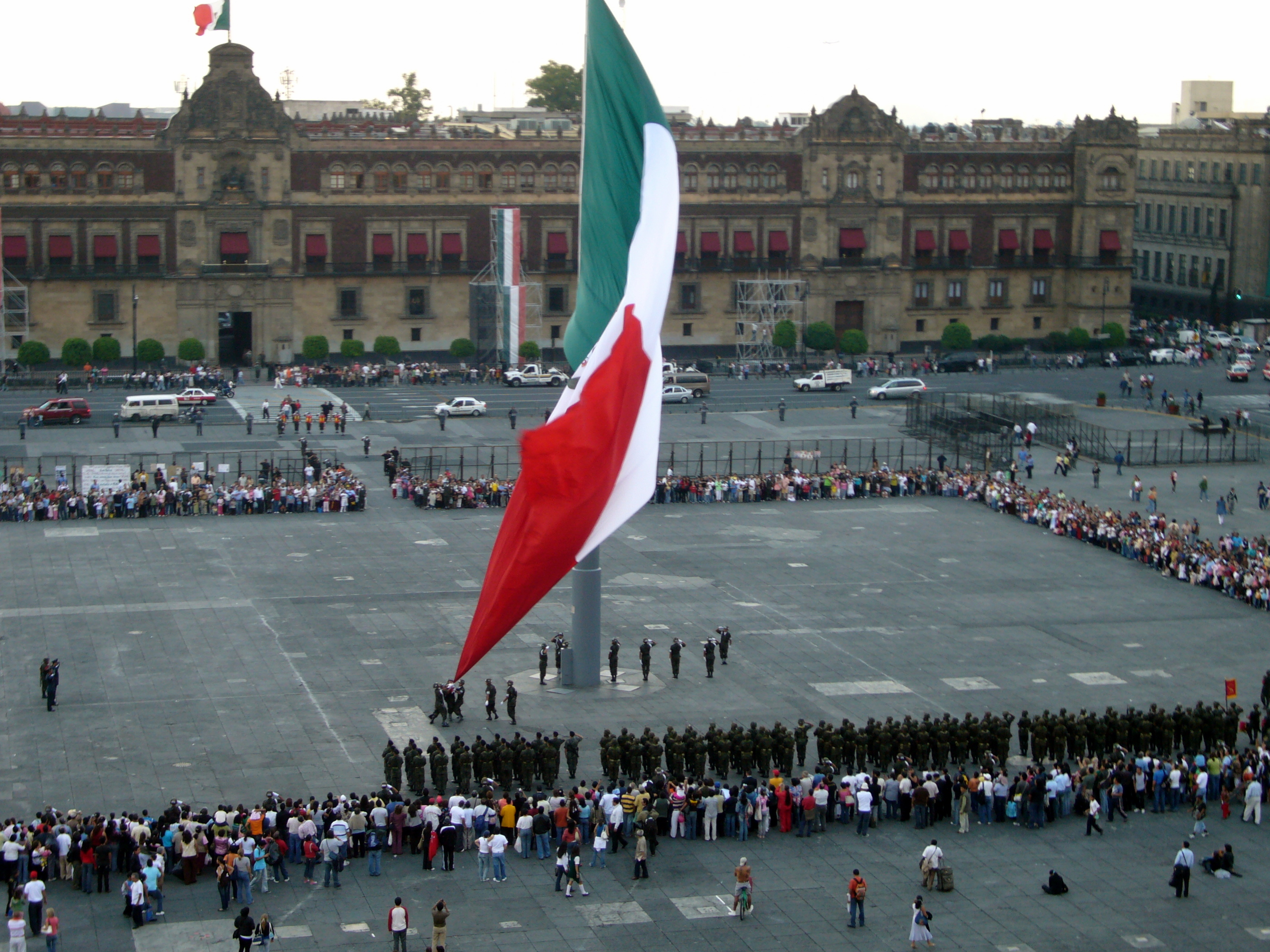Looking Ahead: The Anti-Establishment Sentiment in Mexico’s 2018 Election

Image by Victormoz via Wikimedia / Public Domain
As Mexico undergoes economic and social conflict under the current president, Enrique Peña Nieto, the upcoming 2018 election hints at potential historic changes. While many parties have not officially announced their candidates, the contemporary Mexican political landscape provides clues as to which candidates are eyeing a presidential run.
Although one person cannot seek reelection under Mexican law, presidents aligning with the Institutional Revolutionary Party (PRI) have held office continuously since 1930, with a brief gap only from 2000-2012 when the conservative opposition party, the National Action Party (PAN), garnered the presidency. As frustration against the establishment PRI gains momentum throughout Mexico, 2018’s electoral race is speculated to echo the anti-establishment air that has engulfed many Euro-American nations: Donald Trump in the U.S., Brexit in the United Kingdom, and Marine Le Pen’s persisting popularity in France. However, the populism bubbling to the surface of Mexican politics holds a leftist tune.
Although the presidential office has been occupied by figures from solely two parties, with the PRI inhabiting the office for a much longer time, multiple political parties exist throughout Mexico’s political system.
Representing a minority party called Morena, Andrés Manuel López Obrador is a candidate who is running a campaign centered on left-wing policies and anti-elitism. López Obrador has been especially critical of current president Peña Nieto because of his decision to privatize PEMEX, Mexico’s formerly state-owned oil company. López Obrador has opposed PRI’s privatization, stating: “Privatization is a synonym for robbery.”
Additionally, López Obrador’s platform not only highlights Mexico’s current corruption, it opposes the North American Free Trade Agreement (NAFTA). If elected, López Obrador could transform the current economic relationship with Canada and the U.S., marking a financial shift for Mexican laborers. In accordance with widespread anti-elite sentiment, the Morena candidate has gained support from poor citizens as he attacks corrupt politicians, the elite class, and privatization. Although he mirrors the anti-establishment rhetoric of Trump and LePen, López Obredor advocates for left-wing policies, contradicting recent trends that posit populism only aligns with far right extremism.
Echoing this anti-Peña Nieto rhetoric is PAN’s conservative and center-right candidate Margarita Zavala. A former first lady, Zavala would be Mexico’s first women president. However, Zavala represents the political establishment. Voters may judge Zavala for her husband Fidel Calderon’s presidency which saw a rise in cartel-related crime. With hopes of alleviating tension between the U.S and Mexico since Trump’s election, Zavala has called out Trump’s anti-Mexican sentiment, while highlighting her belief that the U.S. and Mexico must work together. However, Zavala’s campaign does not align with the desire for change seeping through the Mexican terrain. Zavala is familiar politically and thus can easily be lumped as part of the establishment; her candidacy may fail to offer substantial change for voters.
While the center-left party, the Party of the Democratic Revolution (PRD), has yet to declare a candidate, their recent history of supporting Peña Nieto’s economic reforms could push voters away. Similarly, regardless of whom the PRI chooses as their candidate, the legacy of Peña Nieto is sure to taint the campaign. With more than a year left until the June election, fluctuation in polls and candidate popularity may occur. With the possibility of new candidates and the potential rise of other minority parties, the current state of the campaign will likely change.
As of now, López Obredor and Margarita Zavala are the two leading candidates, with the former as the frontrunner. However, the political elite has downplayed López Obredor’s popularity. Former PAN president Vicente Fox has dismissed the Morena candidate’s success, hoping to influence voters not to take López Obredor’s candidacy seriously. However, his popularity is hard to overlook. Matched with the recent uprisings in Mexico from voters dissatisfied with Mexico’s economy, López Obredor’s potential win could steer Mexico towards more leftist policies, retracting agreements concerning foreign private investments and trade agreements, while representing the rise of a new party rooted in left-wing populism — one that counters the recent right-wing political upsurge.




